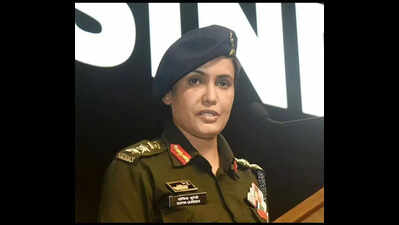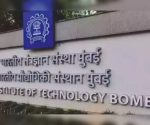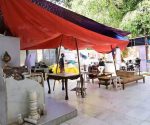As Qureshi Jamat turns 100, members look for life beyond meat business | Mumbai News – Times of India

As army officer Colonel Sofiya Qureshijoined Wing Commander Vyomika Singh recently to brief the world media multiple times about India’s military action against terror hubs in POK and inside Pakistan, India saluted the young women officers of the armed forces.Joining the salutations were members of theAll India Jamiatul Quresh, an organisation of the Qureshis, traditionally meat traders. The Qureshis take pride also in the fact that Sofiya Qureshi belongs to their biradri or jamat and has brought glory to the community and the country.As All India Jamiatul Quresh has turned 100 and plans to hold centenary celebrations, it will also felicitate Sofiya, Farakhanda Qureshi, who secured All India Rank 67 in the UPSC exams 2024 and is slated to join the IAS, as well as a few others in the community who recently excelled in different fields.“Once the situation stabilises, we will invite Sofiya Qureshi, Farakhanda Qureshi, and others who are the shining stars and brought immense pride to the community. We will honour them publicly also to inspire the young generation of Qureshis to emulate these exemplary figures,” said Jamiatul Quresh’s National President Sirajuddin Qureshi. “The Qureshis are no longer confined to slaughtering animals and chopping meat.They fly fighter jets and occupy leading positions in bureaucracy and other professions.”Founded in 1924 by Bhaiyya Rasheeduddin Ahmed Qreshi, also its first president, Alhaj Sofi Ahmed Baksh, Mohammed Baksh Barelvi, and many others, the All India Jamiatul Quresh has represented the Qureshis in their journey for a century. Like many other Muslims, the Qureshis also bore the brunt of British oppression in the aftermath of the failure of the 1857 revolt. Having suffered heavily at the hands of the British colonialists, who saw Indians, especially Muslims, with suspicion due to the widespread rebellion including in Meerut and Delhi, the Qureshis needed an organisation that could unite and lead them.This organisation, headquartered at the aptly named Qasabpura (Qasab in Urdu means butchers) at Sadar Bazaar in Delhi, did exactly that as it fought and keeps fighting for the rights of the Qureshis.Imran Babu Qureshi, vice-president of the organisation, led a recent delegation to the Deonar abattoir to discuss preparations for the upcoming Bakrid festival (in June). At a long meeting with the abattoir’s General Manager Dr Kalim Pathan and other officials, they also discussed how to prevent harassment of the traders who transport goats, sheep, and buffaloes to the abattoir.Since there are intemitently reports of cow vigilantes harassing transporters ferrying animals, a realisation has dawned among the Qureshis that alternatives must be looked for. “The efforts to get the new generation of Qureshis educated began over two decades ago. It is true the efforts were expedited in the last few years as incidents of mob lynching and other harassment in the name of gau raksha (cow vigilantism) became frequent,” said Imran, seated at his Bandra (West) office where Zafar Rahmatullah Qureshi, president of the Mumbai unit of the Jamat, joined him.Mumbai has a vibrant Qureshi population. Qureshi leaders and past office bearers of the Jamat like Babu Iftekhar Qureshi, Khurshid Matru, Abdul Qayyum Qureshi, and Khalid Babu Qureshi worked tirelessly to unite the Qureshis and keep them motivated. The Jamat’s Mumbai unit has formed four sub-committees to work in the fields of education, medical, preparation of documents like OBC and income certificates, and information about and availing of govt schemes.“There is a new awakening among the young generation that education is key to development. Even if some want to carry on in the meat trade, education and training will go a long way in empowering them,” said Zafar, manager at a movie theatre. He added that Qureshis are now increasingly joining the fruits business, construction, and banking, apart from becoming professionals like doctors, engineers,
















